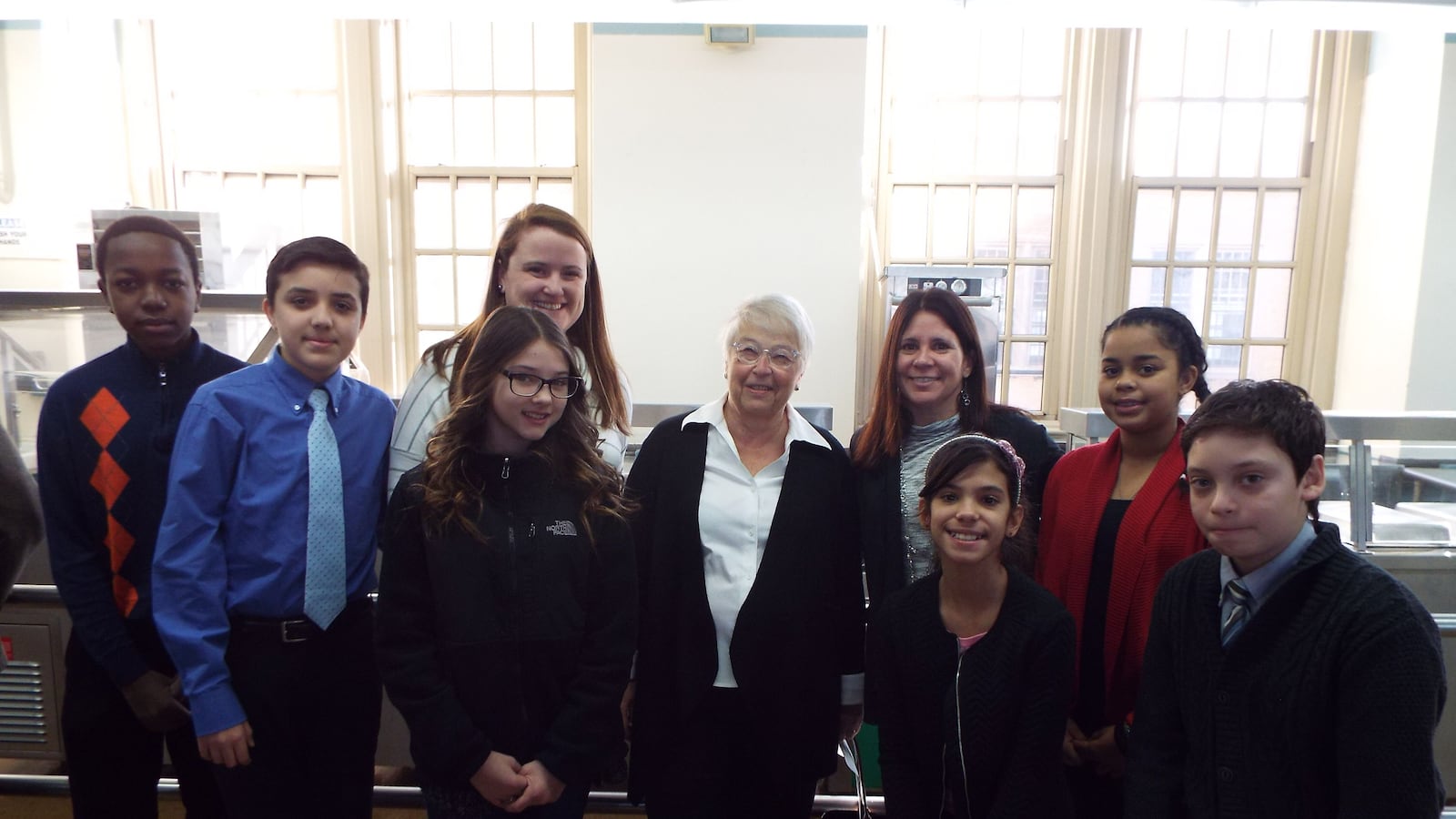When Ben Honoroff took over as principal of Brooklyn’s J.H.S. 50 John D. Wells last year, he stepped into a school headed in the wrong direction. The middle school, which once served well over a thousand students, had dwindled to just a few hundred. English proficiency rates hovered below 10 percent, and it earned a spot in the “Renewal” turnaround program for the city’s 94 lowest-performing schools.
But over the past year, Honoroff has doubled down on an approach that puts literacy skills at the center of the school’s curriculum, and which uses weekly debates to get students excited about building their vocabularies and critical thinking skills.
“For students to really have a deep understanding of [a new] word, they need to be exposed to that word multiple times in multiple contexts,” Honoroff said. That’s why the school’s weekly debate topics — which have ranged from topics like “Who owns the dead?” to genetic testing — are fleshed out across math, science and social studies classes.
Honoroff’s attempt to get his students back on track is supported by the Middle School Quality Initiative, a program aimed at boosting literacy by giving low-performing schools access to extra supports like literacy coaches and some additional funding (his school received $5,000 this past year). But unlike many other education department initiatives, MSQI is a holdover from the Bloomberg administration, and one the city is continuing to invest in.
This year, 115 schools will participate in the program, 19 more than last year, education department officials said. (An education department spokesman could not provide an exact figure for the program’s cost.)
The schools implement MSQI in different ways, ranging from buying extra books to participating in a debate league. “The basis here is really that literacy development is a whole school effort,” said Phil Weinberg, a deputy chancellor who oversees the program. “They are our laboratories for improvement.”
City officials pointed to schools like J.H.S. 50 as examples of the program’s success. That school has deployed a “Word Generation” curriculum that exposes students to academic language they’ll likely see on state exams or in college textbooks, and has invested in “strategic reading periods” where students are allowed to read texts that interest them even if they’re below grade level, and receive more targeted instruction or remediation.
MSQI schools also get support from outside coaches whose work might include observing lessons and offering feedback, or helping principals come up with schoolwide plans to boost reading skills. Schools that sign up can also participate in a range of other MSQI programs including a teacher home-visit initiative, a debate league, and an “urban word poetry slam.”
“The actual amount of money added to the budget is not a lot,” said Honoroff, who was an MSQI coach before becoming a principal, “but the resources provided are tremendous.”
Honoroff’s school is already starting to see some results. Its English proficiency rates, for instance, rose from 9.9 percent in 2014-15, to 22.2 percent in 2015-16, outpacing this year’s unusually large citywide improvements.
Across the program, 88 of the 96 MSQI schools saw increases in English proficiency this past school year, rising an average of 6.1 percentage points — below the 8 percent citywide increase. Average English proficiency among the schools is still only 27.7 percent, but officials pointed out that 8.7 percent fewer students scored at the lowest reading levels this year at MSQI schools, compared with a 7.2 percent drop citywide.
For his part, Honoroff acknowledged that it is difficult to attribute test score increases to one strategy or program, and noted that there is still plenty of room for improvement.
“The MSQI framework understands that it’s not a magic bullet,” he added. “It’s a lot of hard, smart work.”

